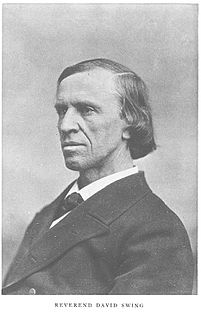A Quote by Ben Carson
Those of us who believe in God and derive our sense of right and wrong and ethics from God's Word really have no difficulty whatsoever defining where our ethics come from. People who believe in survival of the fittest might have more difficulty deriving where their ethics come from. A lot of evolutionists are very ethical people.
Related Quotes
Marriage and parenting are the two strongest vows anyone will ever make. When you see these commitments being carelessly discarded, you can be certain that the ethics of that generation have been abandoned. ... What our society needs is a good dose of biblical ethic from God's people - the kind of ethic that requires us to keep our word no matter what the costs. Situational ethics have so shaped our society that even God's people have lost the concept of absolutes when it comes to keeping our word.
The very essence of political philosophy is the carving out of an ethical system - strictly, a subset of ethics dealing with political ethics. Ethics is the one rational discipline that demands the establishment of a rational set of value judgments; political ethics is that subset applying to matters of State.
Using the phrase business ethics might imply that the ethical rules and expectations are somehow different in business than in other contexts. There really is no such thing as business ethics. There is just ethics and the challenge for people in business and every other walk in life to acknowledge and live up to basic moral principles like honesty, respect, responsibility, fairness and caring.
Christians believe that God created man, and humanists believe that man invented God. But whichever way you look at it, we're brothers and sisters. Either we're brothers and sisters because we're children of God, or because we've banded together to invent God. So the ethics of the humanist and the ethics of some Christians are very similar. And we don't want to create divisions between humanists and Liberation Theologians, any more than we want between the New Worker and the Trots. It's not helpful.
As to ethics, unfortunately, we are still at sea. We never did have any popular base for what little ethics we knew, except the religious theories, and now that our faith is shaken in those theories we cannot account for ethics at all. It is no wonder we behave badly, we are literally ignorant of the laws of ethics, which is the simplest of sciences, the most necessary, the most continuously needed. The childish misconduct of our 'revolted youth' is quite equaled by that of older people, and neither young nor old seem to have any understanding of the reasons why conduct is 'good' or 'bad.
The modern Gamaliel should teach ethics. Ethics is the science of human duty. Arithmetic tells man how to count his money; ethics how he should acquire it, whether by honesty or fraud. Geography is a map of the world; ethics is a beautiful map of duty. This ethics is not Christianity, it is not even religion; but it is the sister of religion, because the path of duty is in full harmony, as to quality and direction, with the path of God.
Thought cannot avoid the ethical or reverence and love for all life. It will abandon the old confined systems of ethics and be forced to recognize the ethics that knows no bounds. But on the other hand, those who believe in love for all creation must realize clearly the difficulties involved in the problem of a boundless ethic and must be resolved not to veil from humankind the conflicts which this ethic will involve us, but allow us really to experience them. To think out in every implication the ethic of love for all creation this is the difficult task which confronts our age.
All the world’s major religions, with their emphasis on love, compassion, patience, tolerance and forgiveness, can and do promote inner values. But the reality of the world today is that grounding ethics in religion is no longer adequate. This is why I believe the time has come to find a way of thinking about spirituality and ethics that is beyond religion.
Ethics and power are separate. Ethics and morality. I think life would be miserable if there weren't some kind of code that people operated by, but history is full of many, many people who have gotten power by very unethical means, and people who were very ethical, who get no power, people who have the most brilliant, lovely, wonderful, nice intentions and bring about horrible things in the world because they don't know how to play the power game.
I came to office promising major ethics reform to end the culture of self-dealing. And today, that ethics reform is a law. While I was at it, I got rid of a few things in the governor's office that I didn't believe our citizens should have to pay for. That luxury jet was over-the-top. I put it on eBay.




































